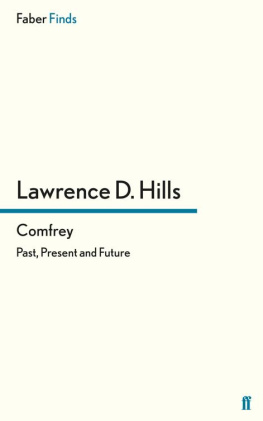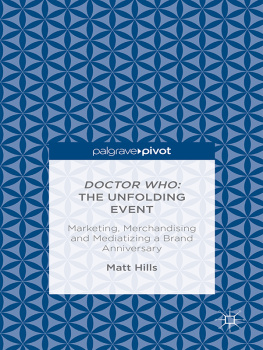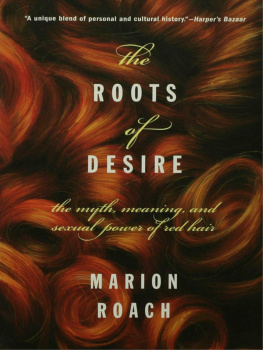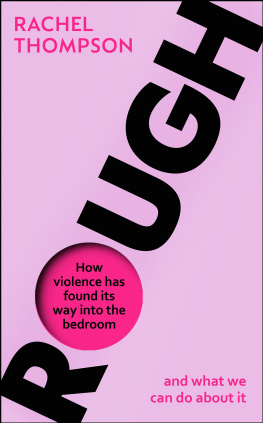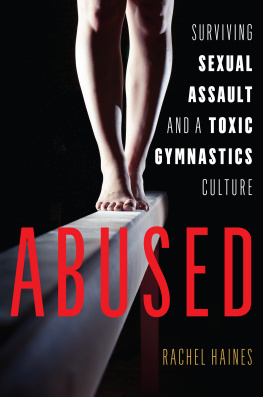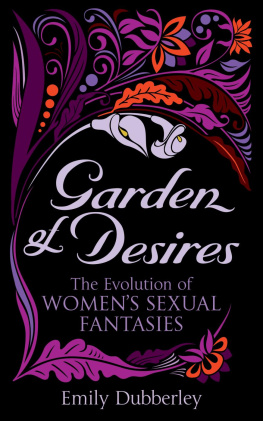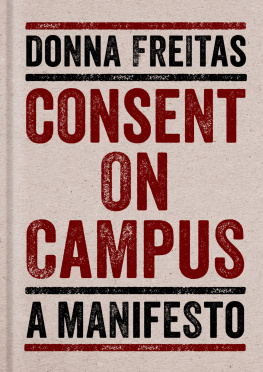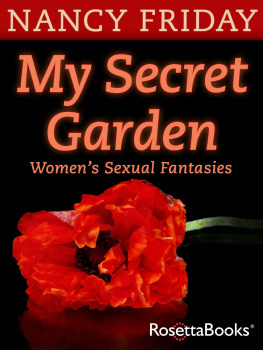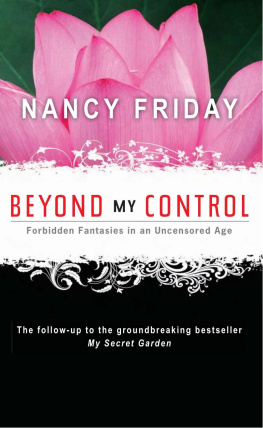Thank you for downloading this Simon & Schuster eBook.
Join our mailing list and get updates on new releases, deals, bonus content and other great books from Simon & Schuster.
C LICK H ERE T O S IGN U P
or visit us online to sign up at
eBookNews.SimonandSchuster.com
Contents
For Monica
The most toxic formulas in our cultures are not passed down in political practice, theyre passed down in mundane narratives.
Junot Daz
My point is not that everything is bad, but that everything is dangerous.
Michel Foucault
Introduction
W hen I was in my late teens and early twenties, I was consumed by sex. Not by the physical urge to have it, although I had my share of crushes and unfulfilled desires. Nor was I overly concerned with the particulars of how I might go about it, although I studiously read Cosmopolitan each month so that I would know what to do when the occasion arose. My obsession was more esoteric than that. I was consumed by the idea of sexby what it meant and by what it might reveal about who I was.
If I didnt have sex, did that make me frigid or a loser? If I did do it, but with someone I didnt loveor worse, with someone who didnt love mewould I regret the decision later? What if Cosmo s thirty-six hot new sex positions failed me in practice? (Friends had reported that some of them were tricky to pull off.)
I had grown up on a diet of teen magazines that treated sex with cautious reverence, followed by womens magazines that celebrated it as a symbol of female empowerment. In the sitcoms I watched on TV, the single characters dated (and by implication, slept with) new people each week. In the conversations I had with acquaintances, sex was at once a subject of nervous excitement and an unspoken assumptionSex is an act bound up in the body, but the way that everyone was doing. I, meanwhile, had made it not only through high school a virgin, but through four years of college as well.
This was not an outcome of my own design, and it was not something that most people would have guessed about me. From the outside, I looked like a normal girlor at least I hoped I did. I did normal girl things like go to parties, flirt, and exchange dirty jokes with my friends. In some arenas, I even fared a little better than normal. I didnt just go to the occasional party; I was a veritable social butterfly. I didnt just try to make myself look presentable for class; I got up an extra forty-five minutes early to wash, dry, and straighten my hair. But beneath the facade, I felt unattractive in the most literal sense of the word: incapable of attracting anyone I was interested in, regardless of how many friends I had or how much I manipulated my appearance to match what I thought I was supposed to look like.
These two statesgirl about town and secret sexual loserseemed irreconcilable to me, each one canceling out the other. My lack of a sex life felt like a mark of failed moral character, the physical manifestation of every flaw I had ever suspected I had and of every defect I feared that the people around me were all too aware of but were too polite to mention out loud. Why else would I be uniquely incapable of an act that everyone else appeared to navigate with ease?
In an era in which most of what we hear and read about sex tends toward the sensational, my story might seem unusual. But my concerns werent unique to me at all. To the contrary, they were a reflection of broader social and political trends. They were a product of a culture that tells us that we must be sexy, sexually active, and skilled in bed in order to be adequate human beingsand that teaches us that the truth of who we are can be found in our sex lives.
Sex is an act bound up in the body, but the way that each of us experiences it is driven by more than just biology. Everything about sexfrom the stories we choose to share with our friends to the people we choose to do it with to the remarkably standardized sexual playbook that starts with kissing, followed by touching, and finally penetrationis influenced by social and cultural forces. Sex is not just physical but symbolic, employed as a barometer of the success of our relationships and the degree to which other people want to be intimate with us. It serves as a proxy for our physical attractiveness and how well we fit in with the people around us.
What each of us believes about sex is a product of our particular time and place. The second-century theologian Clement of Alexandria advised Christians not only against engaging in nonreproductive sexual acts such as oral and anal sex but also against having sex at especially pleasurable times of daysuch as the morning, the daytime, or after dinner (that is to say, at virtually any time of the day). The Victorians delighted in cataloging every variety of possible deviance: from bondage to bestiality to having sex from behind rather than face-to-face. Even the ancient Greeks, regularly praised for their open-minded approach to carnal matters, operated within a complex and contradictory code of sexual ethics, in which sexual relationships between boys and men were treated as a rite of passage into adulthood, but it was considered demeaning for a man to be penetrated by a man of the same age and social status.
But despite our long-standing preoccupation with sexuality, most people know surprisingly little about the sex lives of others. One result of this information gap is that, like I did, many people assume that others are having better sex, and more of it, than they actually are. While researching his book Guyland: The Perilous World in Which Boys Become Men , sociologist Michael Kimmel asked male college students across the United States what proportion of their classmates they believed had sex on any given weekend. The average answer they gave was about 80 percent. In fact, according to the Online College Social Life Survey, a cross-campus study of more than 24,000 American university students, 80 percent is the proportion of college seniors who have ever had sex. Writes Kimmel: The actual percentage [who have sex] on any given weekend is closer to 5 to 10 percent. Kathleen Bogle, another American sociologist whose research focuses on young people and casual sex, has made similar observations: no matter how much sex the students she interviewed were having, most of them assumed that other young people were having even more.
Even when I felt most isolated and insecure, I knew that many people had sexual histories that were less perfector at least more complexthan they let on in public. Most of the conversations I participated in about sex were at once embellished and notably lacking in detail: designed to convey an impression of experience and sophistication while giving away as little information as possible. But the wall wasnt always up. I would drop my guard around my closest friends, and they would drop theirs around me. The issues they were dealing with were often different from my own, but they were enough to suggest that others too may have covered up any cracks in their sexual facade with a metaphorical layer of paint.
It wasnt until shortly before my twenty-fifth birthday, however, that I began to realize how thinly that coat of paint might be applied. This book is dedicated to my good friend Monica, a vivacious ball of energy I met through a youth arts organization we both worked at in our early twenties, and with whom I fell in swift platonic love when I read her witty, self-reflective blogs and zines, in which she chronicled everything from the guys she was crushing on to her work as a bartender.
Monica represented everything I thought a young woman should be, and everything I aspired to be myself. She was confident and friendly and adventurous, and one of the smartest, most insightful people I knew. She was fun the kind of person who always stayed out late, because you never knew how the night would end if you went out, but you always knew what would happen if you stayed home. This was a woman who, only a couple of years before, had crafted badges reading five-dollar kiss and worn them out to clubs. In other words, she was about as far from the stereotype of the uptight wallflower as you could get.
Next page

